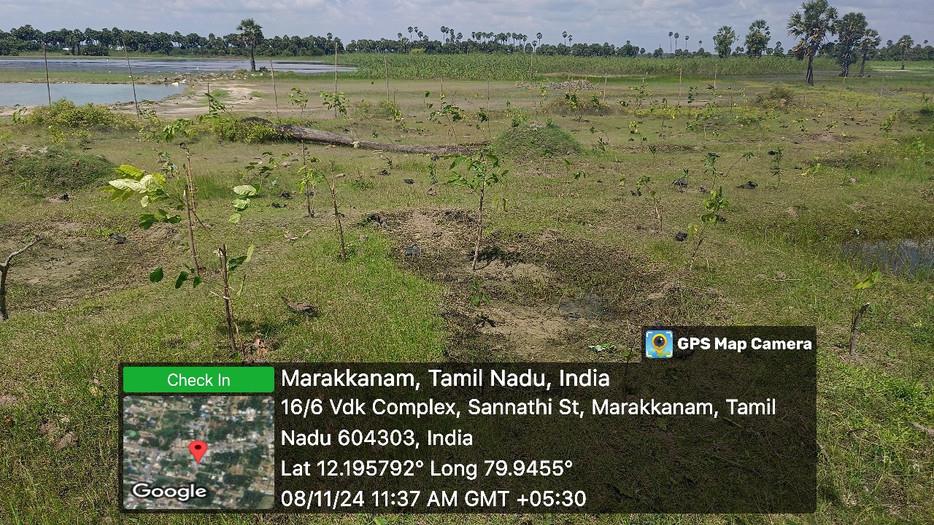

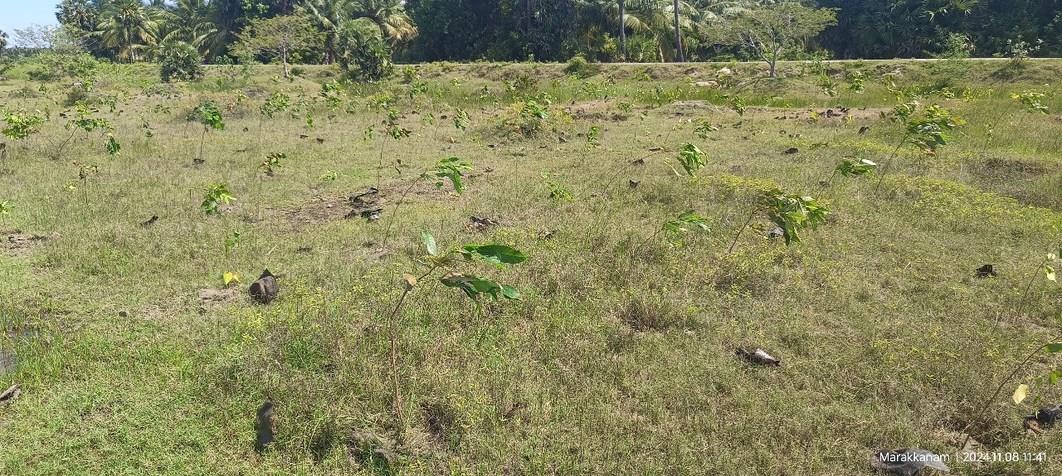
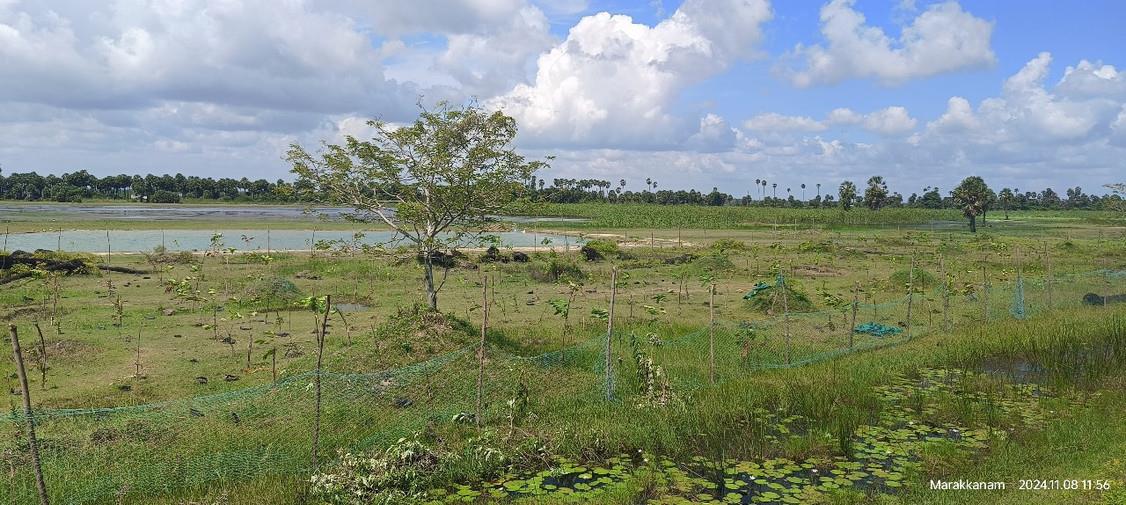
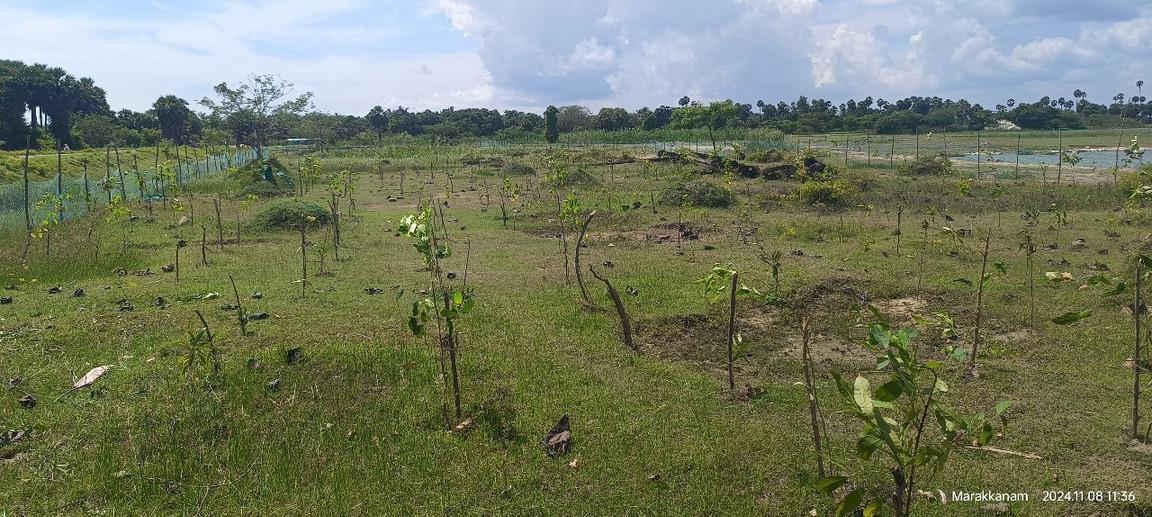

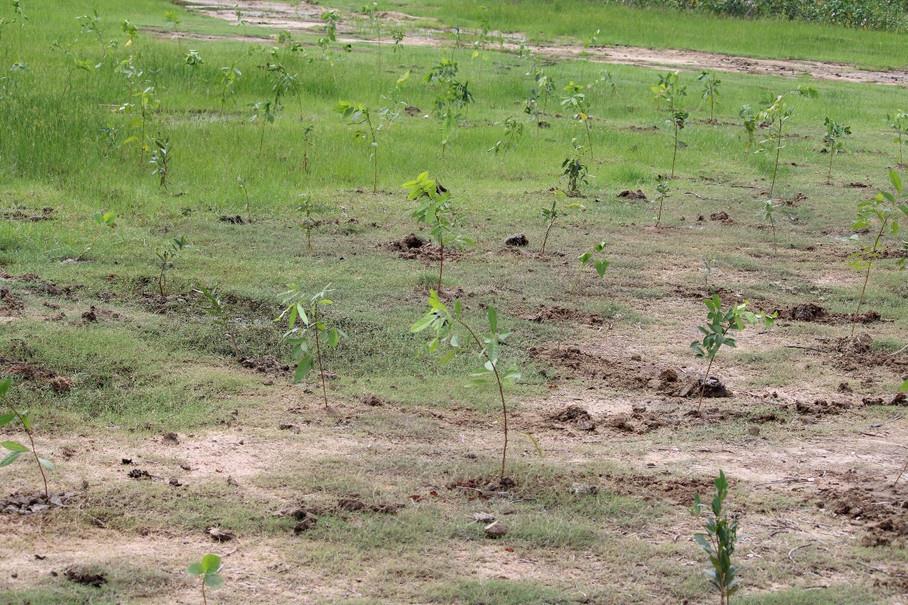
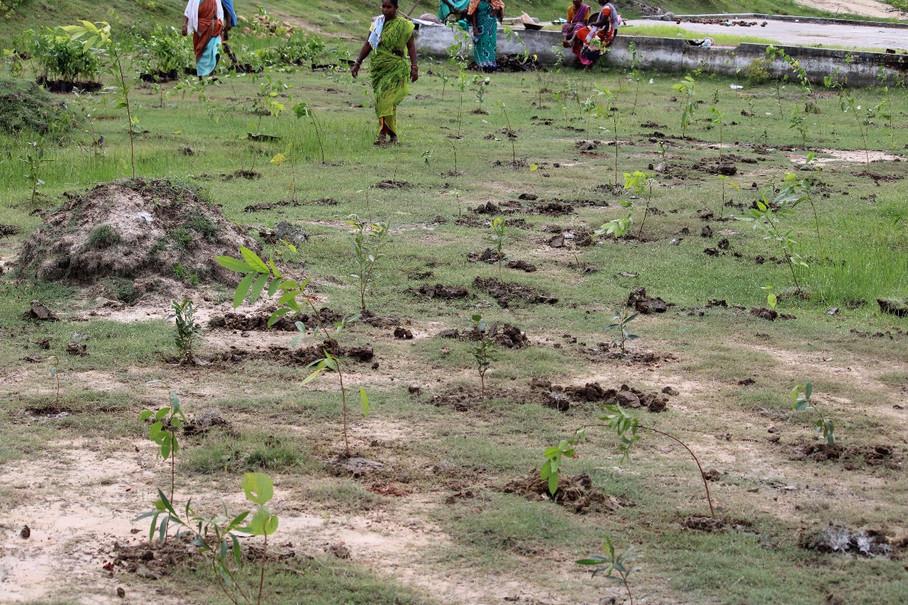
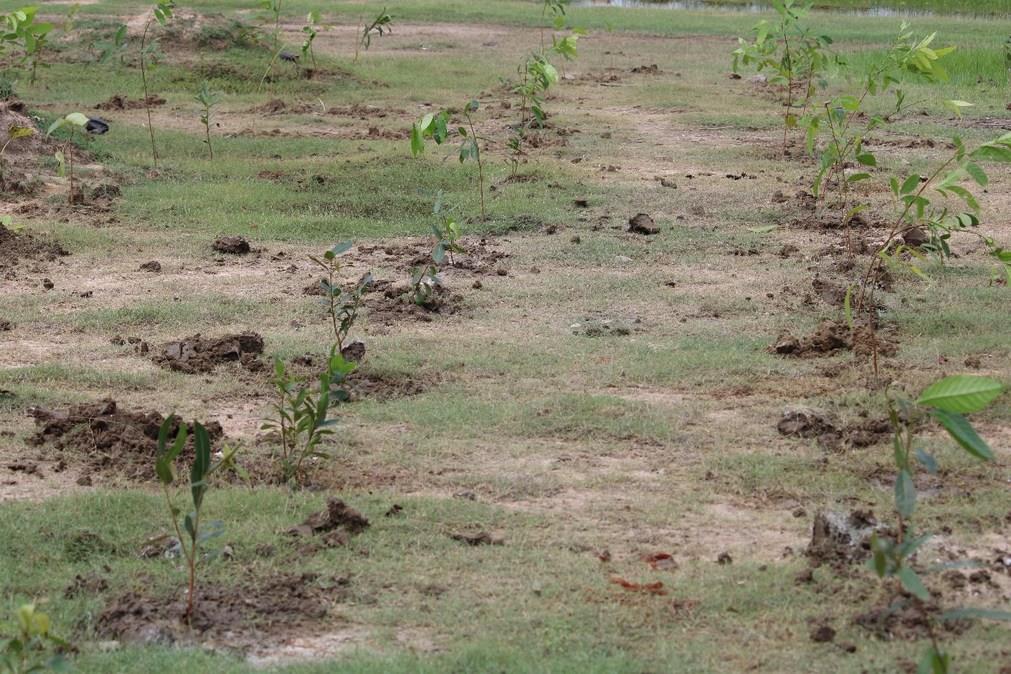
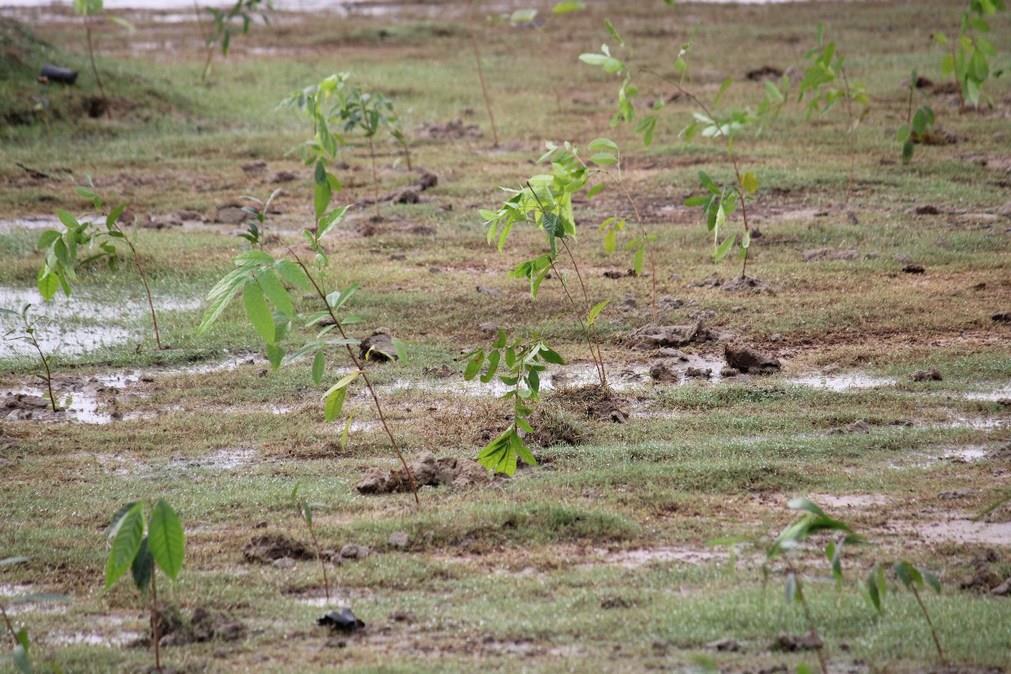
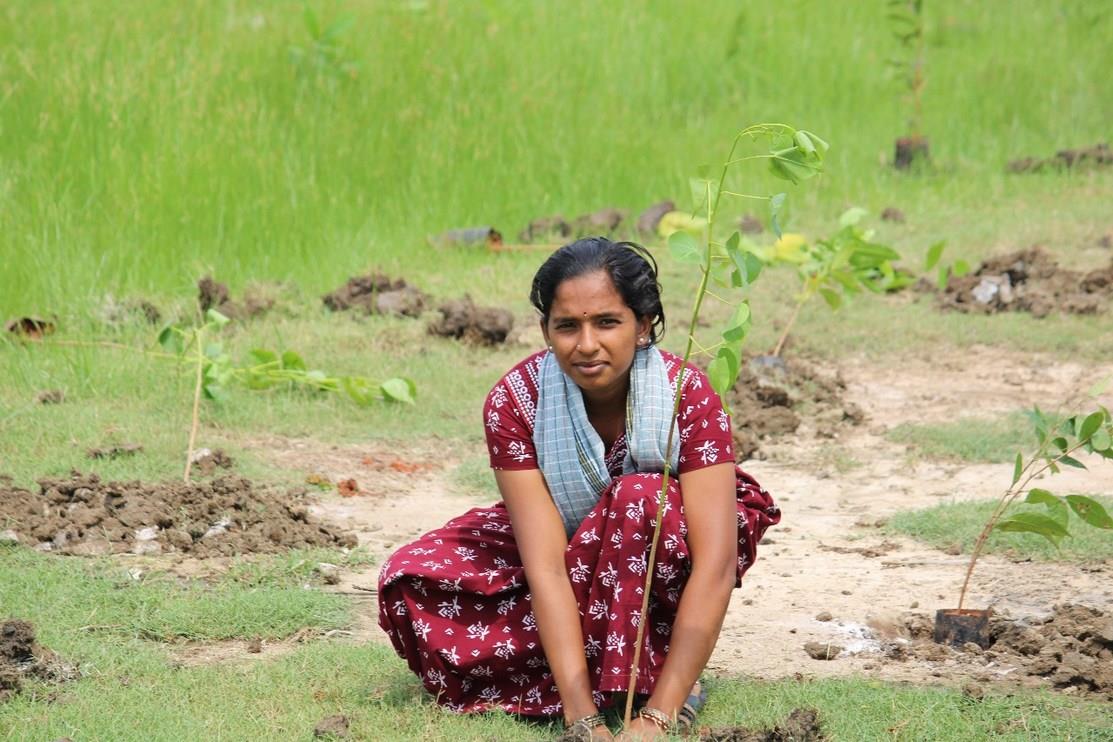
Project Target
0% Remaining
10,000
Trees Planted out of 10,000 Trees

Project Location:
In FY 2024-25, we planted 10,000 trees near Temple lake of Athikuppam village of Marakkanam block, Viluppuram district, Tamil Nadu, India.
Project Aim
SDG
Why Trees?
To evade the Northern Hemisphere’s unforgiving cold, a large number of avian species move towards the South after the onset of the winter season.[1] Yet these birds still face a number of problems as they migrate to the South, which has made migration as difficult as winters in the North. The foremost threat to migratory birds in India is habitat loss, driven by deforestation, wetland drainage, introduction of non-native plant species, urban expansion, and intensive agriculture.[2] India hosts a remarkable diversity of bird species, with approximately 1,349 recorded as of 2019. According to WWF, 78 species among these are endemic to the country, and 212 are globally threatened.[3] A UN report indicated that nearly 44% of migratory bird species populations are in decline, underscoring the urgency of conservation efforts.[4]
The rapid disappearance of wetlands across the country seems alarming, with nearly two out of every five wetlands in India vanishing in the past three decades alone. Additionally, a staggering 40% of water bodies have experienced a decline in quality, jeopardising the survival of aquatic life and the migratory birds that depend on them. Therefore, urgent action is imperative to restore and conserve wetlands, safeguarding both the delicate ecosystems they harbour and the avian species reliant upon them for their survival.
A crucial step in mitigating the decline of migratory bird populations is to identify and safeguard vital locations serving as breeding, feeding, and stopover sites. One such location is Viluppuram in Tamil Nadu, which hosts birds such as Green bee-eater, Black Drango, House Crow, Paddy field Pipit ,Sparrow hawk, Parakeet, Common hood as well as foreign birds like Cranes, Pelicans, Glossy ibis, Purple Heron, Pond Heron, Little Heron, Black headed ibis, Garganeys, Babblers, Pheasant-tailed Jacanas visit during migratory season every year.
By addressing threats such as habitat loss and implementing targeted conservation measures, we can contribute to the preservation of India's rich avian biodiversity for generations to come.
Tree Species
In this tree plantation project, we have carefully selected tree species that will sustain the birds as well as the local communities. We planted species such as Indian tulip (Thespesia populnea), Arjun (Terminalia arjuna), African Mahogony (Khaya senegalensis), Jamun (Syzygium cumini) and Yellow teak (Haldina cordifolia).
Social Impact
Tree plantation offers numerous benefits that span across multiple aspects.*
Our project generates employment opportunities for the local communities since we are committed to working closely with them across all our planting sites. Their contribution in preparing the saplings in the nursery, transportation of the saplings, plantation and maintenance is invaluable. They can also earn additional income from the plantation produce. Once the trees mature, they can supplement their income from timber and fruits. We have an inclusive policy and encourage women’s involvement in our tree plantation initiatives. This allows them to support themselves and their families.
Tree plantation will allow us to regulate the natural water cycle, thereby improving the water quality. This will also recharge the groundwater, ensuring that water from rainfall and other sources soaks into the ground and refills underground water sources. Villagers will be able to save enough water for drinking, agriculture and other purposes.
By reducing soil erosion and improving the overall soil quality, the agricultural productivity of the villagers will also see a boost. Additionally, since livestock is a major source of sustenance in rural areas, we aim that our plantation will provide ample fodder to meet their needs.
Trees do an excellent job absorbing carbon dioxide from the atmosphere. A mature tree can absorb up to 20 kg of CO2 each year. Trees reduce pollution, keep the temperature cool and reduce atmospheric stressors.
*The environmental benefits of the trees reach their full potential as they mature.
[1] Anil kumar and Imran alam (2023) Migration of birds and their flyways in India, Rec. zool. Surv. India: Vol. 123(1S)/25-35, 2023
[3] Aishwarya Das Pattnaik. World Migratory Bird Day. WWF
[4] AP (2024). Nearly half of world's migratory species declining, shows UN report. Business Standard
Social Impact of Growing Trees
Community Engagement
Tree planting initiatives often involve local communities, which can lead to greater community cohesion.
Ecological Education
Provides opportunities for community members, especially children, about the importance of environmental sustainability.
Urban Beautification
Trees contribute to the aesthetic enhancement of urban areas, making cities more pleasant and liveable.
Climate Resilience
By improving green cover, tree planting helps make communities more resilient against climate impacts like heatwaves.
Employment Creation
Planting trees creates employment for local community members like planting and maintenance, administrative roles, and more long-term jobs in management.
Wildlife Habitat
Trees provide critical habitats for various species of wildlife. Enhancing tree cover helps preserve biodiversity, which can be an ecological boon for local communities
Copyrights @ 2025 All rights reserved by Pangea EcoNetAssets Pvt Ltd.